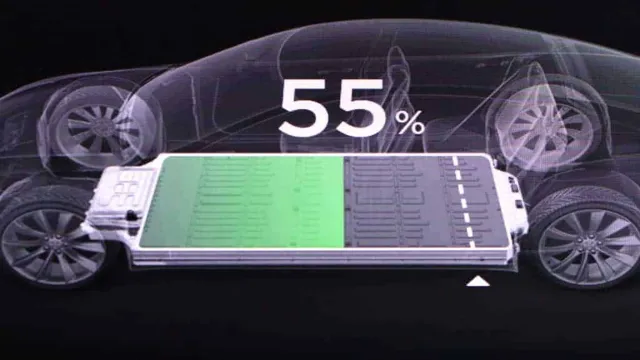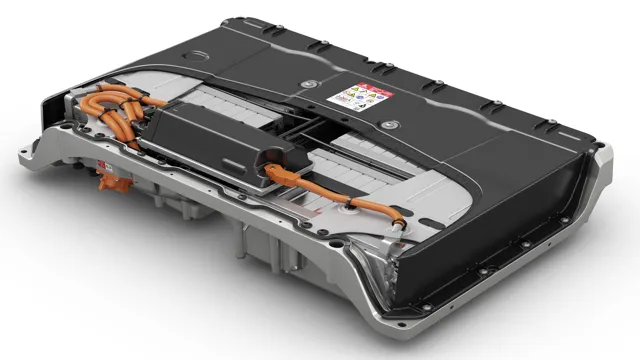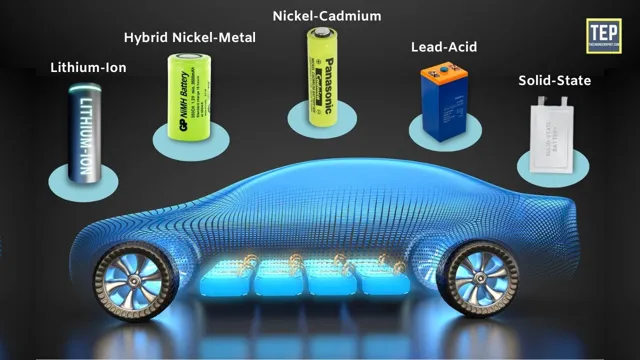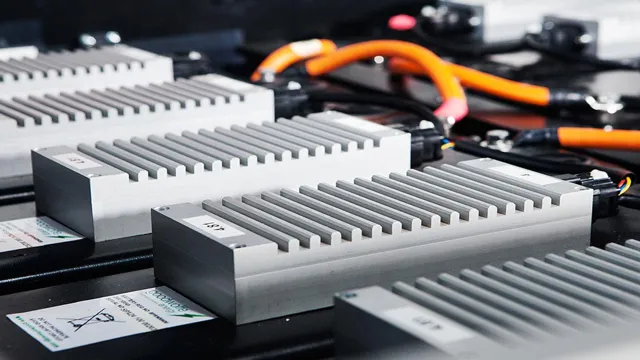Rev Up Your Ride with These Expert Tips to Keep Your Electric Car Battery Healthy
Electric cars are one of the most popular new technologies on the road today, and there’s no doubt why. Not only are they great for the environment, but they’re also cheaper to operate compared to traditional gasoline-powered cars. However, one aspect of owning an electric car that many people are curious about is battery health.
After all, the battery of an electric car is the heart of the vehicle, and without it, your car won’t be able to take you very far. In this article, we’ll dive into the world of electric car battery health and answer some of the most commonly asked questions about it.
Why Battery Health Matters
Electric car battery health is a crucial aspect that every electric vehicle owner should be aware of. Batteries are the heart of an electric car, and their performance can significantly affect the driving experience and overall lifespan of the vehicle. Battery degradation is inevitable, and the rate at which it occurs is influenced by several factors such as temperature, driving style, and charging habits.
Taking care of your battery’s health is vital because it can help to maintain its performance and extend its lifespan. Regular maintenance and servicing, proper charging habits, keeping the battery cool, and avoiding extreme temperatures are some of the best practices to maintain the battery’s health. Neglecting battery health can lead to reduced electric range and may ultimately require replacing the battery, which can be a costly affair.
In conclusion, optimizing your electric car battery health is vital for a smooth and trouble-free driving experience, and to get the most out of your electric car.
Longevity of the Battery
Battery health is crucial for the longevity of your device’s battery life. A healthy battery is one that can hold a charge for a long time, which means you can use your device for longer periods without needing to recharge. It is important to maintain your battery’s health by charging it properly and avoiding extreme temperatures.
Overcharging or letting your battery completely die can affect its health and reduce its lifespan. It’s like taking care of a plant – you need to give it the right amount of water and sunlight to keep it healthy. Similarly, monitoring your battery’s health can save you money in the long run by avoiding the need to replace it sooner than necessary.
So, keep an eye on your battery’s health to ensure optimal performance and longevity.
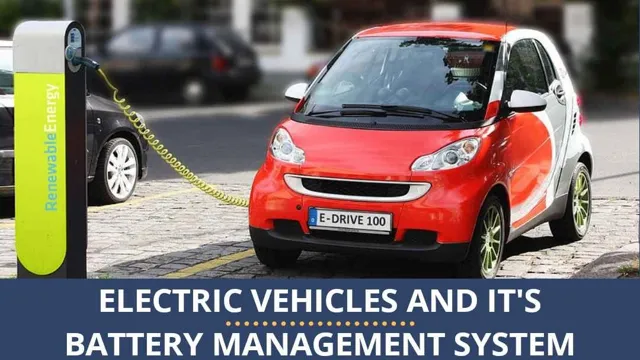
Performance of Electric Vehicles
As electric vehicles continue to gain popularity, it’s essential to understand why battery health matters in their performance. After all, the battery pack is the heart of an electric car, providing the energy needed for its motor to run. When the battery is healthy, an EV can perform at its best.
However, as the battery ages or experiences damage, its capability and efficiency decline, and it affects the car’s overall performance. It’s similar to how a runner’s performance suffers if they’re not feeling their best. Ensuring the battery’s health is pivotal.
Drivers can monitor their battery’s state of health, schedule regular maintenance, and avoid high temperatures that can degrade the battery quicker. By taking care of the battery, electric car owners can improve their vehicle’s range, acceleration, and overall performance. So, remember to take care of your EV’s heart, and it will thank you with consistent, reliable performance on the road.
Factors Affecting Battery Health
Electric car battery health is affected by a variety of factors, including usage, temperature, and charging habits. Frequent fast charging and deep discharging can contribute to a decline in battery health over time. Additionally, extreme temperatures can cause the battery to degrade more quickly.
It’s important to also note the impact of driving habits and the type of terrain being driven on. Frequent stops and starts or hilly terrain can put more strain on the battery and subsequently decrease its lifespan. To maintain optimal battery health, it’s recommended to follow manufacturer guidelines for charging and usage, avoid extreme temperatures, and drive in a way that minimizes strain on the battery.
Temperature and Climate
Temperature affects battery health in various ways. High temperatures can cause a battery to lose its charge faster, and it accelerates the rate of chemical reactions that occur within the battery cells. Extreme temperatures can cause damage to the internal structure of a battery, leading to reduction in its life.
On the other hand, extremely low temperatures can also affect battery health negatively by reducing the battery’s ability to generate power. Therefore, it is important to store batteries within the recommended temperature range to ensure longevity and optimal performance. Another factor that affects battery health is climate.
In regions with extreme temperatures, such as deserts or arctic regions, batteries may struggle to perform at their peak due to the harsh conditions. It is important to choose batteries that are suitable for the climate and conditions in which they will be used, as these factors can significantly impact their health and efficiency. Overall, proper battery maintenance and usage is essential for maintaining the health of your batteries, regardless of the temperature or climate in which they are used.
Charging Habits
The way we charge our devices has a considerable impact on their battery’s health. One of the primary factors that affect the lifespan of a battery is the temperature at which it is charged. Charging your device under high temperatures can cause damage to the battery over time.
Additionally, charging your device up to 100% also negatively affects the battery’s health over time. It is recommended to charge your phone up to 80% and unplug it once it reaches that level. Moreover, using third-party chargers that do not meet the manufacturer’s specifications might also affect the battery’s health and cause it to malfunction.
Lastly, avoid leaving your devices charging overnight, as it exposes them to overcharging, which can lead to damage or even overheating. Making small changes in your charging habits can significantly enhance the battery’s health and prolong its lifespan, ultimately saving you time and money in the long run.
Driving Habits
When it comes to maintaining battery health, your driving habits play a significant role. Factors such as frequent short trips, extreme temperatures, and aggressive driving can all put added strain on your battery and reduce its lifespan. Short trips don’t allow your battery to fully recharge, putting more strain on it each time you start your car.
Additionally, extremely hot or cold weather can make it harder for your battery to function properly. Aggressive driving, including rapid acceleration and hard braking, can also put added strain on your battery and cause it to wear out more quickly. To keep your battery in good condition, aim to take longer trips when possible, park your car in a garage or shaded area to avoid extreme temperatures, and maintain a steady and gentle driving speed.
By following these habits, you can help extend the life of your car’s battery and avoid costly replacements.
How to Monitor Battery Health
Monitoring the health of your electric car battery is crucial to maintaining its longevity and efficiency. One of the most effective ways to do so is by using battery management systems (BMS). BMS provides real-time data on the battery’s health, such as its state of charge, voltage level, and temperature.
You can also use BMS to monitor the battery’s charging and discharging rates, which can impact its lifespan. Regularly checking your battery’s health allows you to detect any problems early on, extend its life, and avoid costly repairs down the line. So, don’t neglect your electric car’s battery health, make sure to keep an eye on it using BMS or other monitoring tools to ensure its longevity and peak performance.
Dashboard and Mobile Apps
As we rely more on our mobile devices, it’s important to monitor our battery health to avoid any unexpected shutdowns. Luckily, there are ways to do this through your dashboard or mobile apps. Most smartphones have a built-in battery health tracker that you can access through your settings.
This will show you the overall health of your battery and any specific issues that may be causing it to drain faster. You can also download third-party apps that provide more detailed information and can even give you suggestions on how to extend the life of your battery. Keep in mind that constantly charging your phone to 100% can actually be detrimental to the health of your battery in the long run.
It’s better to charge it to around 80% and keep an eye on how often you’re charging it throughout the day. By monitoring your battery health and taking proper precautions, you can ensure that your device stays powered up when you need it most.
Diagnostic Tools
As we rely heavily on our devices these days, it’s essential to ensure that their batteries are healthy and functioning well. Fortunately, there are several tools you can use to monitor your battery health. One useful diagnostic tool is the Battery Health feature on iPhones, which provides you with information about your battery’s maximum capacity and peak performance capability.
This feature also sends notifications if your battery’s health starts decreasing, letting you know when it’s time for a replacement. On Android phones, you can use third-party apps like AccuBattery and Battery Life to monitor your battery health. These apps give you detailed information about battery usage, charging habits, and optimal charging levels.
However, it’s crucial to use these tools only as a reference and keep in mind that they may not be entirely accurate. Regular maintenance and healthy charging habits, such as keeping your battery between 20% and 80%, can also help prolong its lifespan and keep your device running smoothly. By using diagnostic tools and following healthy charging practices, you can ensure that your device’s battery stays healthy and functional for as long as possible.
Tips for Optimizing Battery Health
Electric car battery health is crucial for maximizing the performance and longevity of your vehicle. To optimize your battery’s lifespan, there are a few tips to keep in mind. Firstly, avoid extreme temperatures, as they can significantly reduce battery capacity.
Secondly, don’t let your battery drain completely as it can damage the cells and reduce its overall lifespan. Thirdly, refrain from rapid charging your battery frequently, as it can reduce the battery’s capacity over time. Finally, keep your battery clean and free of debris to prevent any potential damage to its cells.
By following these simple tips, you can maximize the lifespan of your electric car battery and enjoy the full benefits of owning an eco-friendly vehicle.
Conclusion
In conclusion, taking care of your electric car battery is like taking care of a houseplant – if you neglect it, it will wither away. But if you give it the proper attention and care, it will flourish and thrive. So, charge responsibly, avoid extreme temperatures, and maintain a balanced state of charge for optimal electric car battery health.
Your wallet and the environment will thank you.”
FAQs
What factors can affect the health of an electric car battery?
Electric car battery health can be affected by usage patterns, temperature extremes, charging habits, and age.
How can I maintain the health of my electric car battery?
To maintain the health of your electric car battery, avoid exposing it to extreme temperatures, ensure that it is charged regularly, and try to use slow charging whenever possible.
How do I know if my electric car battery is losing health?
Signs that your electric car battery is losing health may include reduced battery range, slower charging times, or warning alerts from the battery management system.
Will fast charging harm my electric car battery health?
Fast charging can impact electric car battery health, but modern battery management systems are designed to minimize the risk. It’s still best to prioritize slow charging whenever possible to maintain optimal battery health.

